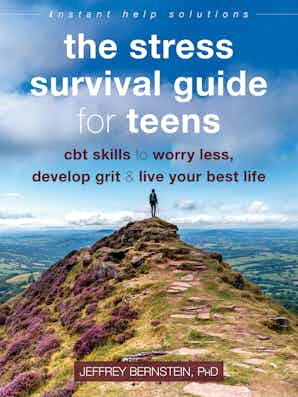Many teens are feeling isolated and frustrated during this current pandemic. Shelter-in-place and the ongoing distancing precautions needed for the foreseeable future have many teens bemoaning the agonizing question on everyone’s mind: How long will this last? With no clear answers at this time of a national pandemic, teen frustration is on the rise. There is a short list of people they can take their frustrations out on, and usually parents have the prized status of being the number-one or -two spot on the list. Here is a brief activity to help guide your teen clients through how to cope when they find themselves upset with their parents.
Introduce the activity to teen clients as a tool for being less reactive with their emotions to create less intense and fewer conflicts with their parents during this pandemic. Gently reflect with your client how doing their part to lower anxiety, frustration, and anger can help them have fewer conflicts with their parents and other family members as they continue to adjust to the new normal.
Share this brief mindfulness activity with your client to help reregulate their negative, angry emotions. Ask the client to:
1. Begin focusing on an important time in the past when you felt your parents showed love and caring intentions for you. Now, gently focus on the following as you take a few mindful breaths.
2. Breathe in, and reflect without judgment on your parents’ continued loving concern for you.
3. Breathe out, and let go of any negative thoughts and feelings you have toward them for what they are doing now that bothers you.
4. Breathe in again, reflecting without judgment on their loving concerns of caring and safety for you.
5. Breathe out, sending them kind feelings and gratitude for caring about you.
Repeat these steps in order, three times.
After guiding your teen clients through this activity, help them to reflect on what it was like to slow down and think about their parents in a less reactive and kinder way. Use the following questions to guide them and discuss the opportunities gained by this activity:
How was this activity helpful to be more able to see things from your parents’ point of view?
Can you see how understanding your parents’ point of view can keep you feeling calmer when you express yourself to them?
How does better understanding your parents help you lower your anger, and help them be more patient and understanding with you as well?
Jeffrey Bernstein, PhD, is a child, teen, and family psychologist with more than thirty years’ experience. He completed his postdoctoral internship at the University of Pennsylvania Counseling Center, and holds a PhD in counseling psychology from the University at Albany, State University of New York (SUNY). He has appeared on the Today Show, Court TV, and more. He is author of Mindfulness for Teen Worry, 10 Days to a Less Defiant Child, 10 Days to Less Distracted Child, Liking the Child You Love, and Why Can’t You Read My Mind? He also published the Letting Go of Anger Card Deck. He lives in the Philadelphia, PA, area.


 Why Journaling Is Especially Helpful to Adult Children of Emotionally Immature Parents
Why Journaling Is Especially Helpful to Adult Children of Emotionally Immature Parents